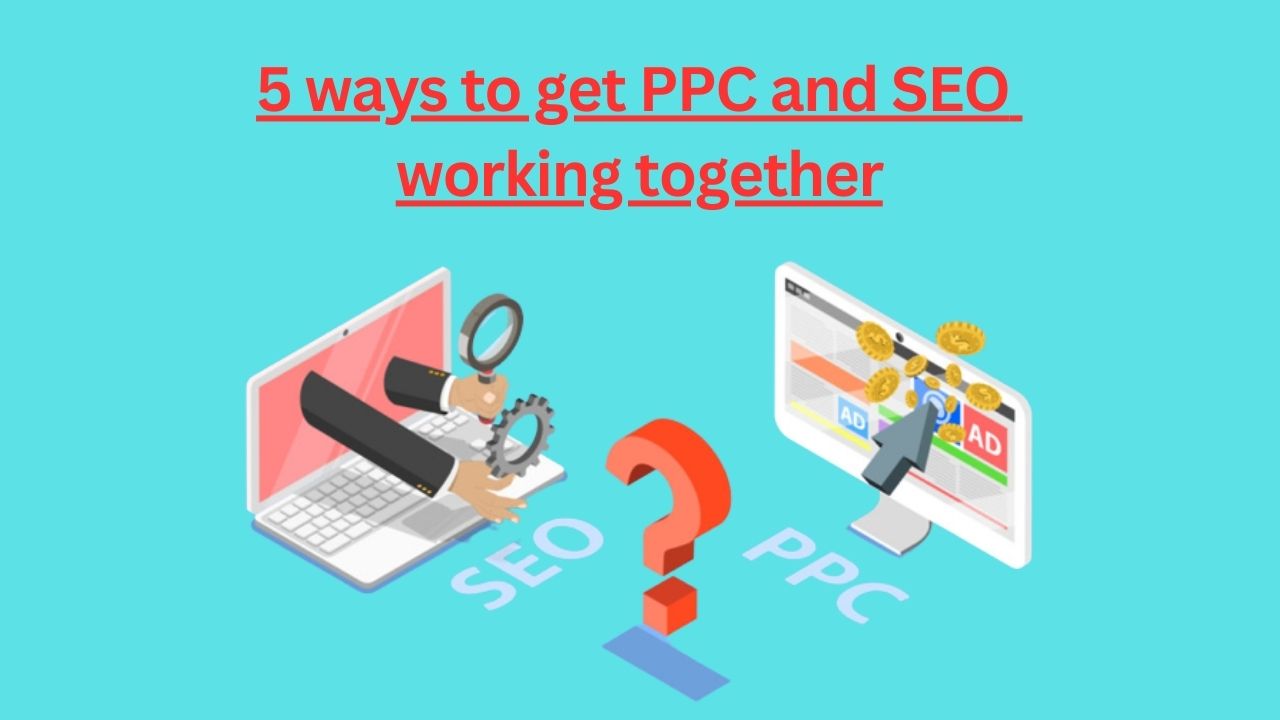5 Effective Strategies to Combine PPC and SEO for Maximum Impact

Posted on 2023-08-02 13:28:27, by Seawind
Pay-Per-Click (PPC) and SearchEngine Optimization (SEO) are two powerful digital marketing strategies. They
are often viewed as separate entities, but when combined, they can produce
exceptional results and significantly improve your online presence. In this
blog post, we will explore five effective ways to get PPC and SEO working
together to boost your website's visibility, traffic, and overall digital
marketing success.
Keyword Collaboration
Keywords are the foundation of
both PPC and SEO. Combining efforts in keyword research and analysis can lead
to a more comprehensive and targeted approach. Here's how you can collaborate
on keywords:
a. Identify Shared Keywords:
Start by identifying high-performing keywords that are relevant to your
business. These keywords should be used in both your PPC campaigns and SEO
content.
b. Refine Keyword Strategy:
Analyze the performance of shared keywords in PPC campaigns to understand which
ones drive the most conversions. This data can then be used to optimize your
SEO strategy, targeting the same high-performing keywords in your website's
content.
c. Strengthen Landing Pages: When
PPC ads direct visitors to landing pages with content that aligns with the ad's
keywords, it improves the user experience and boosts quality scores, leading to
better ad performance and potentially lower cost-per-click (CPC).
Data Sharing and Cross-Channel Insights
To ensure PPC and SEO efforts
complement each other, it's essential to share data and insights between the
two teams. This collaboration will enable both teams to make informed decisions
and adjust their strategies accordingly.
a. Integrated Analytics: Use
integrated analytics tools, such as Google Analytics and Google Ads, to gather
data from both PPC and SEO campaigns. This will provide a holistic view of your
online performance and help identify opportunities for optimization.
b. Identify Successful Keywords:
Analyze PPC data to identify keywords with high conversion rates and low CPC.
Share these insights with the SEO team to create content around these keywords
and improve organic search rankings.
c. Conversion Funnel Alignment:
Understanding the customer's journey from initial search to conversion is
crucial. Aligning PPC and SEO strategies to address each stage of the funnel
can lead to a more cohesive user experience and increase the chances of
conversion.
Retargeting for SEO Traffic
Retargeting (or Remarketing) is a
powerful PPC strategy that targets users who have previously visited your
website but did not convert. This tactic can be leveraged to support your SEO
efforts and maximize return on investment (ROI).
a. Custom Audience Segmentation:
Use PPC retargeting to create custom audiences based on user behavior on your
website. For instance, segment visitors who browsed specific product pages or
spent a certain amount of time on your site.
b. Personalized Content: Tailor
your PPC ad messaging to match the interests and actions of each audience
segment. Deliver ads that remind visitors of the products or services they
viewed on your site, enticing them to return and complete their purchase.
c. SEO Benefit: By encouraging
return visits through retargeting, you increase the likelihood of users
engaging with your site, sharing content, or linking back to your pages. This
increased user engagement can positively impact your SEO rankings.
A/B Testing for Continuous Improvement
Both PPC and SEO strategies
require continuous improvement and refinement. A/B testing is a valuable
technique that can be applied to both to optimize their performance.
a. PPC A/B Testing: Test
different ad copies, visuals, and landing pages to determine which variations
drive the highest conversions. Apply the learnings from successful PPC tests to
refine your website's content for SEO.
b. SEO A/B Testing: Conduct
experiments on your website's content, headlines, meta tags, and other on-page
elements to identify which changes positively impact search rankings and user
engagement. Use the insights gained to optimize your PPC ad messaging.
c. Shared Learnings: Regularly
share the results of A/B tests between the PPC and SEO teams to leverage
successful strategies from one channel to improve performance in the other.
Content Synergy
Content marketing plays a vital
role in both SEO and PPC. Ensuring synergy between your content efforts can
amplify their impact.
a. Keyword-Centric Content:
Create high-quality, keyword-centric content that addresses the pain points and
interests of your target audience. Use the insights from PPC campaigns to
understand which content topics resonate most with your audience and
incorporate them into your SEO content plan.
b. Landing Page Optimization:
Align your PPC landing pages with the messaging and keywords used in the ad.
Optimize these pages for SEO, as they can also rank organically and drive
additional traffic.
c. Repurposing Content: Repurpose
high-performing PPC ad copy into meta descriptions and title tags for SEO. This
can improve your organic search click-through rates and, subsequently, your SEO rankings.
Conclusion
Integrating PPC and SEO efforts
can be a game-changer for your digital marketing strategy. By collaborating on
keywords, sharing data and insights, utilizing retargeting, conducting A/B
testing, and aligning content marketing efforts, you'll create a synergistic
effect that enhances your online visibility, drives more traffic, and boosts
conversions. Implementing these five strategies will help your PPC and SEO work
hand in hand, maximizing the return on investment for both channels and
contributing to your overall marketing success.

